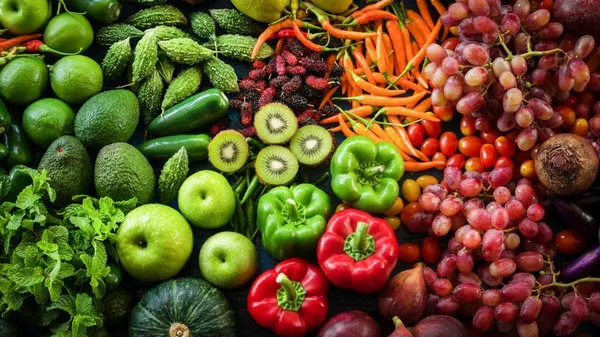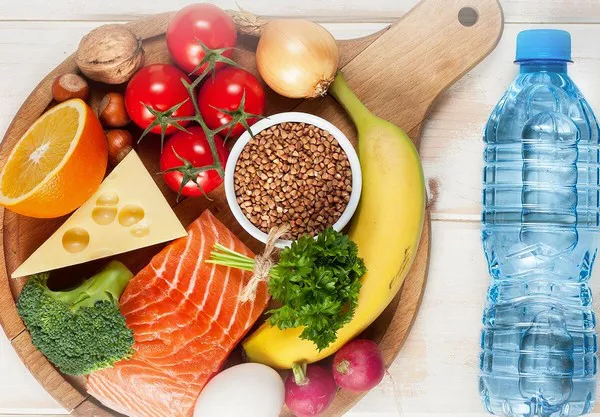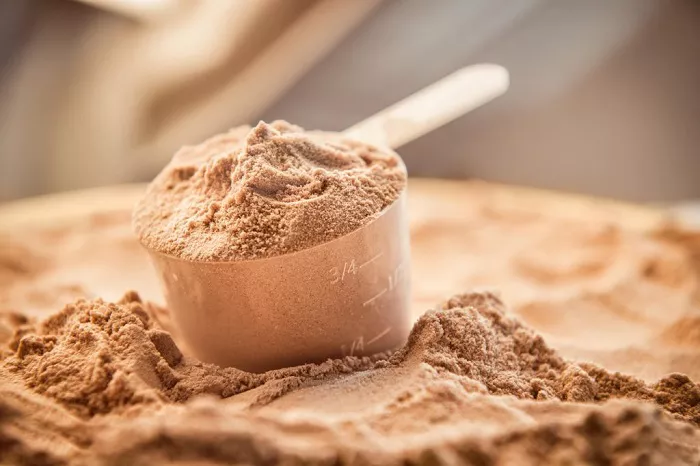Protein is an essential nutrient required for various functions in the body, including muscle development, tissue repair, and the production of enzymes and hormones. While animal products are often associated with high protein content, there are numerous plant-based foods that can provide a substantial amount of protein. In this article, we will explore some of the plant-based foods that are highest in protein, offering a diverse range of options for individuals following a plant-based or vegan diet. By incorporating these protein powerhouses into meals, individuals can meet their protein needs and maintain a healthful and balanced diet.
1. Legumes
Legumes are a class of plants that includes beans, lentils, chickpeas, and peas. They are renowned for their high protein content, making them an excellent choice for individuals seeking plant-based protein sources. Legumes provide a combination of protein, fiber, and complex carbohydrates, offering a well-rounded nutritional profile. For example, cooked black beans contain about 15 grams of protein per cup, while cooked lentils offer approximately 18 grams of protein per cup. Incorporating legumes into meals such as soups, stews, salads, and plant-based burgers can significantly boost protein intake while providing other essential nutrients.
2. Soy Products
Soy products are derived from soybeans and are considered complete protein sources because they contain all nine essential amino acids that the body needs. They are versatile and can be incorporated into a variety of dishes. Tofu, a popular soy product, provides about 20 grams of protein per 3.5-ounce serving. It can be grilled, stir-fried, or added to soups and salads. Tempeh, another soy-based product, offers approximately 20 grams of protein per 3.5-ounce serving. It has a dense and chewy texture, making it a great addition to sandwiches, stir-fries, and grain bowls. Edamame, young soybeans, provides around 8 grams of protein per half-cup serving and can be enjoyed as a snack or added to salads. Soy products not only contribute to protein intake but also offer other beneficial nutrients like calcium, iron, and omega-3 fatty acids.
3. Quinoa
Quinoa is a pseudocereal that is often referred to as a complete protein source due to its impressive amino acid profile. It contains all nine essential amino acids, making it an excellent plant-based protein choice. In addition to its protein content, quinoa is also rich in fiber, magnesium, and various other nutrients. A cooked cup of quinoa provides approximately 8 grams of protein. This versatile grain can be used as a base for salads, added to soups, or enjoyed as a side dish. Its mild and nutty flavor makes it a popular choice among individuals seeking plant-based protein options.
4. Hemp Seeds
Hemp seeds are small, nutty-flavored seeds that are rich in protein, healthy fats, and various other essential nutrients. They offer a complete protein profile, containing all essential amino acids. Three tablespoons of hemp seeds provide approximately 10 grams of protein. They can be sprinkled on top of salads, added to smoothies, or incorporated into baked goods. Hemp seeds are also a good source of omega-3 and omega-6 fatty acids, making them a valuable addition to a plant-based diet.
5. Chia Seeds
Chia seeds are tiny black seeds that pack a nutritional punch. They are an excellent source of protein, fiber, omega-3 fatty acids, and various minerals. Two tablespoons of chia seeds offer approximately 4 grams of protein. Chia seeds can be soaked in liquid to form a gel-like consistency, making them a popular choice for making chia pudding or used as a thickening agent in smoothies and baked goods. They can also be sprinkled on top of yogurt, oatmeal, or salads to add a protein boost.
6. Lentils
Lentils are a type of legume that come in various colors, including green, brown, and red. They are an excellent source of plant-based protein and provide a variety of essential nutrients. Cooked lentils offer approximately 18 grams of protein per cup. They are versatile and can be used in a wide range of dishes, including soups, stews, curries, and salads. Lentils are also high in fiber, iron, and folate, making them a nutrient-dense addition to a plant-based diet.
7. Spirulina
Spirulina is a type of blue-green algae that is widely consumed as a dietary supplement. It is incredibly nutrient-dense and offers a significant amount of protein. Spirulina contains approximately 6 grams of proteinper tablespoon. It is also a rich source of vitamins, minerals, and antioxidants. Spirulina can be added to smoothies, juices, or used as a natural food coloring agent. It has a unique taste that may take some getting used to, but its protein content and nutritional benefits make it a valuable addition to a plant-based diet.
Conclusion
Plant-based diets can provide ample protein when incorporating protein-rich plant-based foods into meals. Legumes, soy products, quinoa, hemp seeds, chia seeds, lentils, and spirulina are just a few examples of plant-based foods that are highest in protein. By including a variety of these protein powerhouses in a balanced diet, individuals can easily meet their protein needs while enjoying a wide range of flavors and nutritional benefits. It is important to note that protein requirements may vary depending on factors such as age, gender, activity level, and overall health. Consulting with a healthcare professional or registered dietitian can help determine specific protein needs and ensure a well-rounded and nutritious plant-based diet.
[inline_related_posts title=”You Might Be Interested In” title_align=”left” style=”list” number=”6″ align=”none” ids=”2116,3114,3111″ by=”categories” orderby=”rand” order=”DESC” hide_thumb=”no” thumb_right=”no” views=”no” date=”yes” grid_columns=”2″ post_type=”” tax=””]

































